Intensive course: Art in public spaces
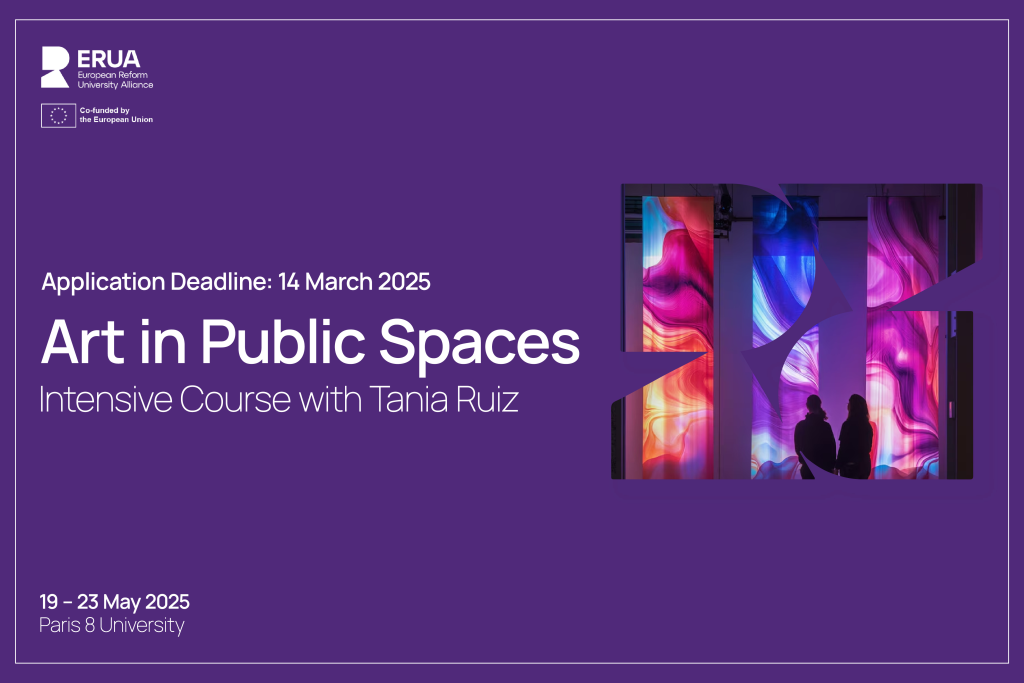
Dates: 19th – 23th May 2025 Location: Paris, France ERUA and Paris 8 University are announcing an intensive course “Art in public spaces” that will take place in Paris 8 University, between the 19th and the 23th of May. In this course, students will have the chance to study the relationship between artworks and […]
Call for applications: Online Social Entrepreneurship Course
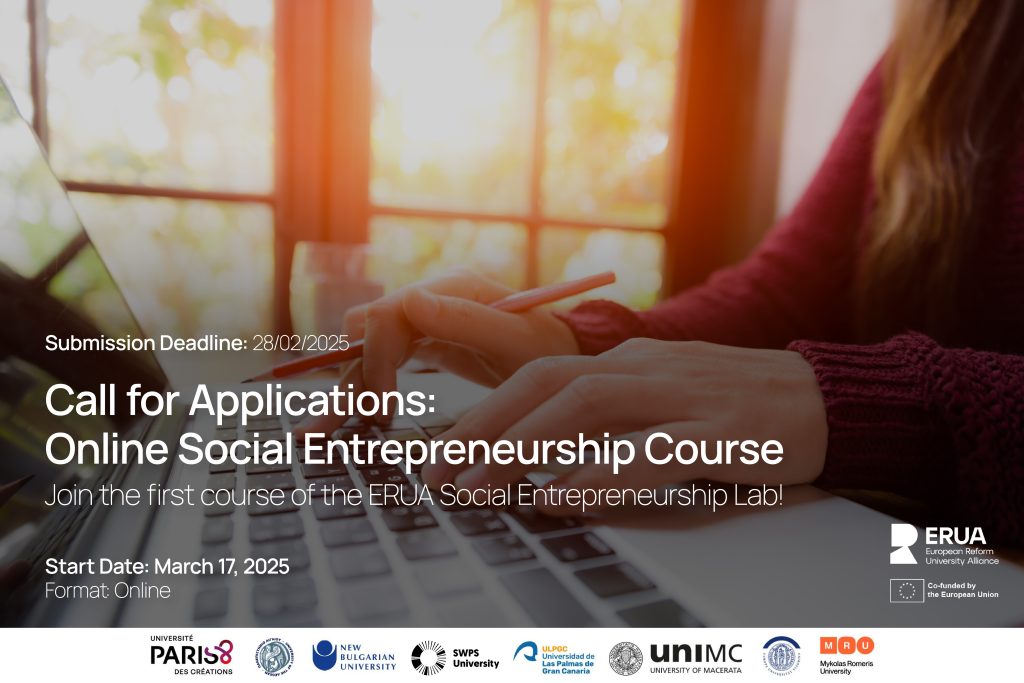
Start Date: March 17, 2025 ERUA is happy to announce our first Online Social Entrepreneurship Course. The online Social Entrepreneurship Course: Creating Solutions for European Challenges is a very unique programme developed collaboratively by all ERUA Universities. This course, hosted under the ERUA Social Entrepreneurship Lab, will empower students to address pressing social, environmental, and […]
ERUA Student Conference: NextGen in Psychology
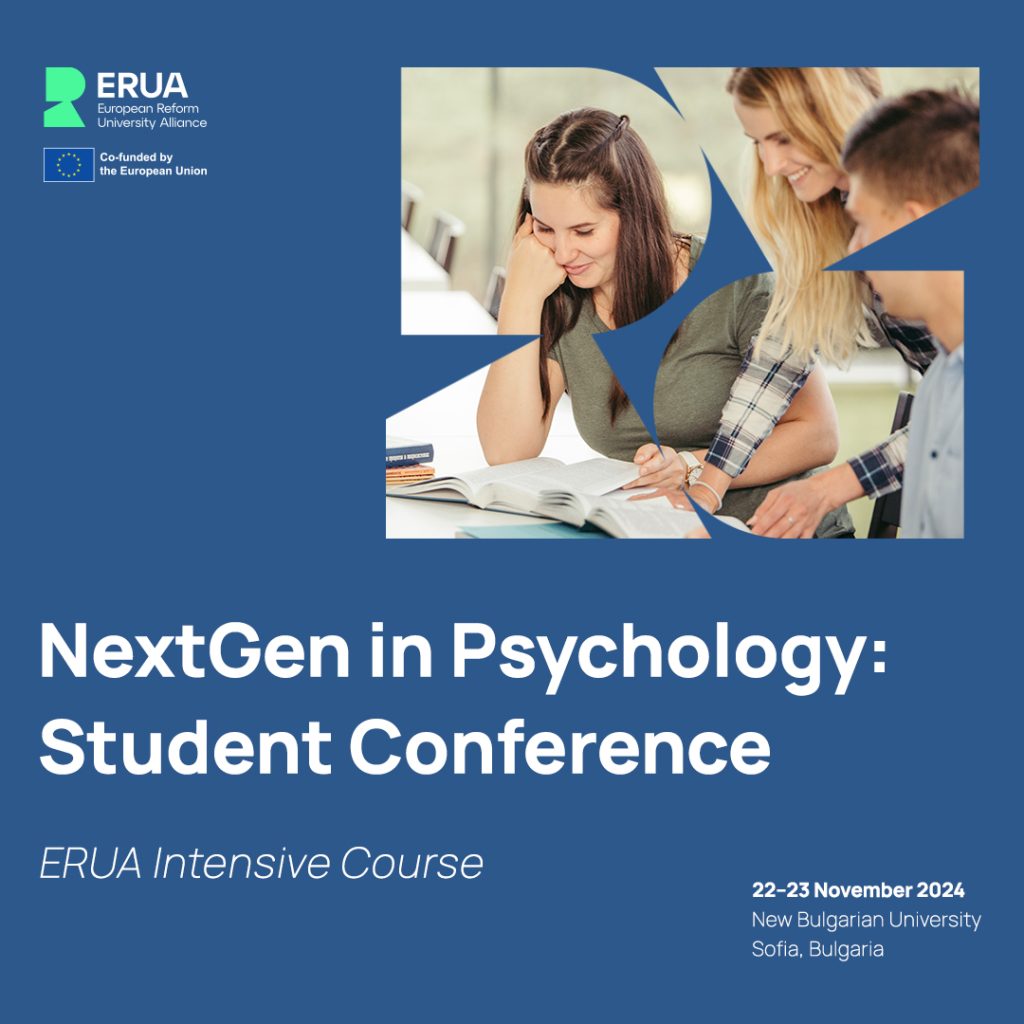
22 – 23 November 2024 Sofia, Bulgaria You are invited to participate in NexGen in Psychology – a student conference organized by the Research Center for Cognitive Science at New Bulgarian University in cooperation with Mykolas Romeris University and Paris 8 University as part of the ERUA consortium. This two-day event will bring together psychology students across all education levels (Bachelor’s, Master’s, PhD) […]
ERUA Intensive course: “Quantitative research: requirements and basic statistics.”
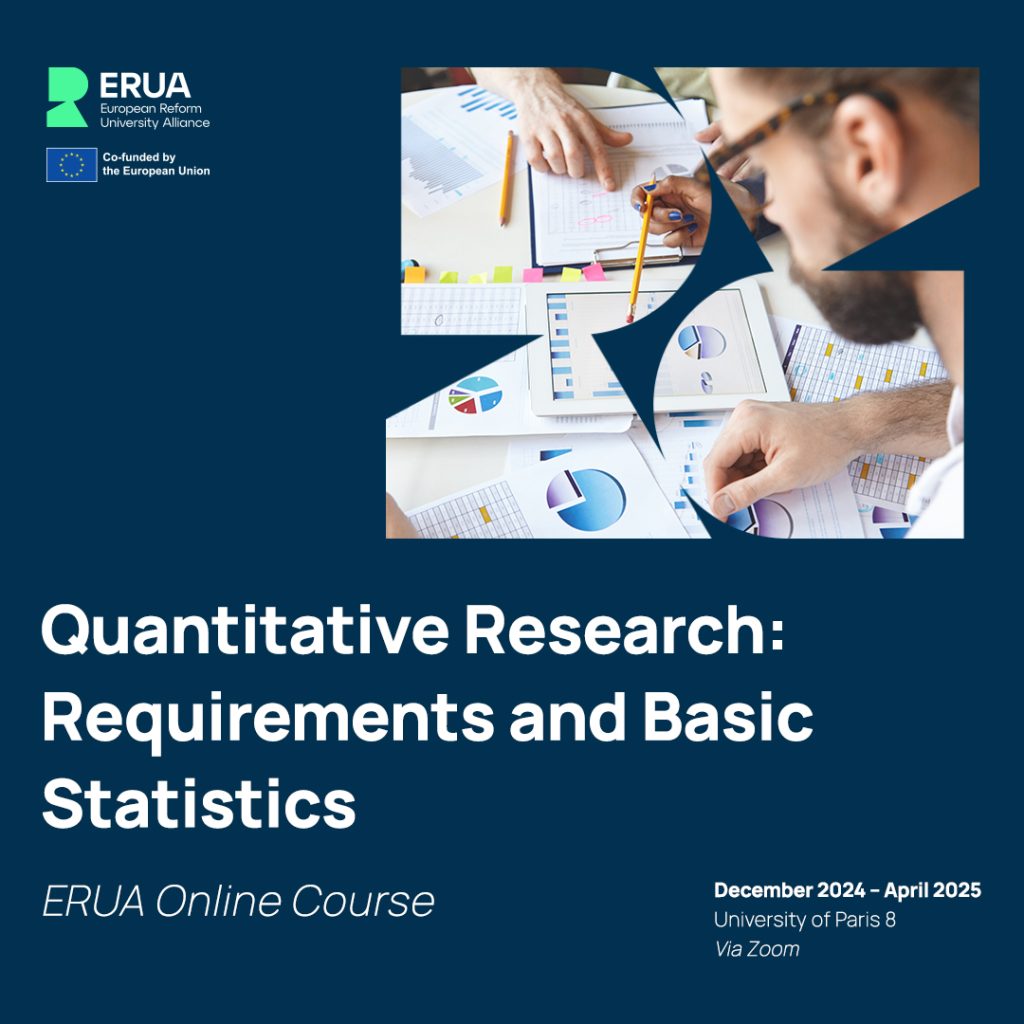
December 2024 to April 2025 Paris 8 University organises an online intensive course: “Quantitative research: requirements and basic statistics”, which will take place between December 2024 and April 2025. The schedule is adapted to the needs of quantitative research – from design to writing results and will be conducted in 6 sessions (5 teaching […]
ERUA Intensive course: “Semiotics of interface”
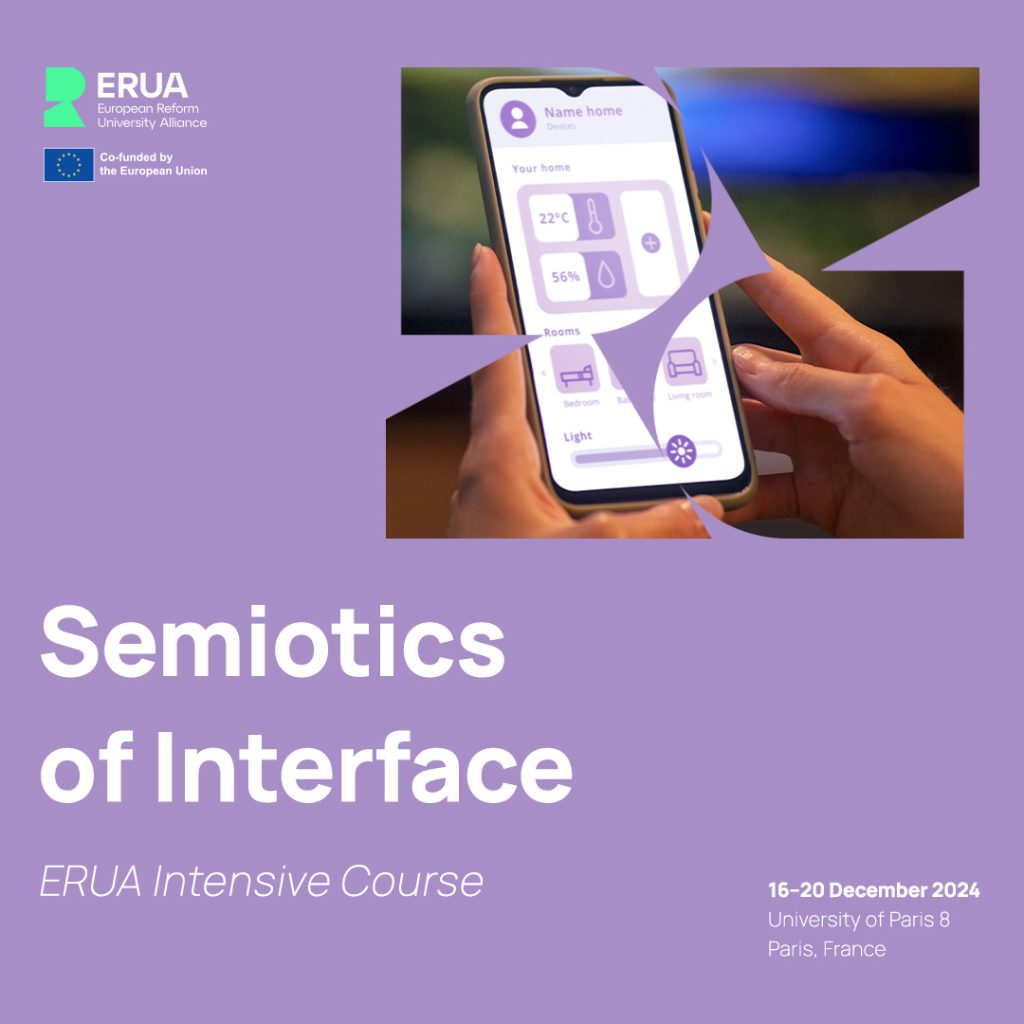
16th to 20th of December 2024 Paris, France Between the 16th and 20th of December the Paris 8 University will conduct and intensive course “Semiotics of interface”. This research-creation workshop explores the semiotics of interfaces by questioning the meanings of technical objects and graphical interfaces. It aims to develop a critical understanding of the meanings […]
ERUA Intensive course: “Conference cycle/Lecture series”
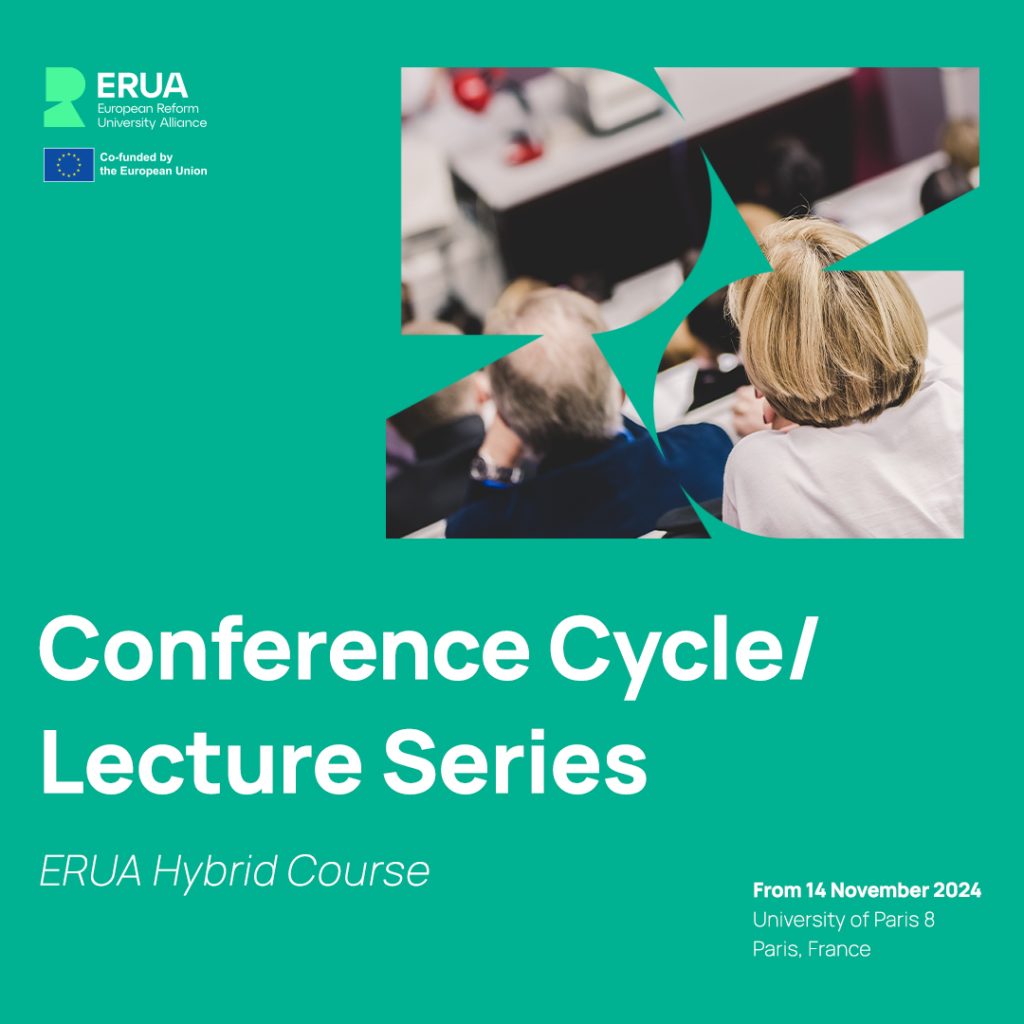
Starting 14th of November 2024, Paris 8 University – On-site and On-line We are announcing that Paris 8 University and ERUA is launching a new Multidisciplinary “Conference Cycle/Lecture Series”, designed to engage MA students from diverse fields of study. This lecture series involves students from both the first and second year of the Master’s […]
ERUA Intensive course: “Representing the political”
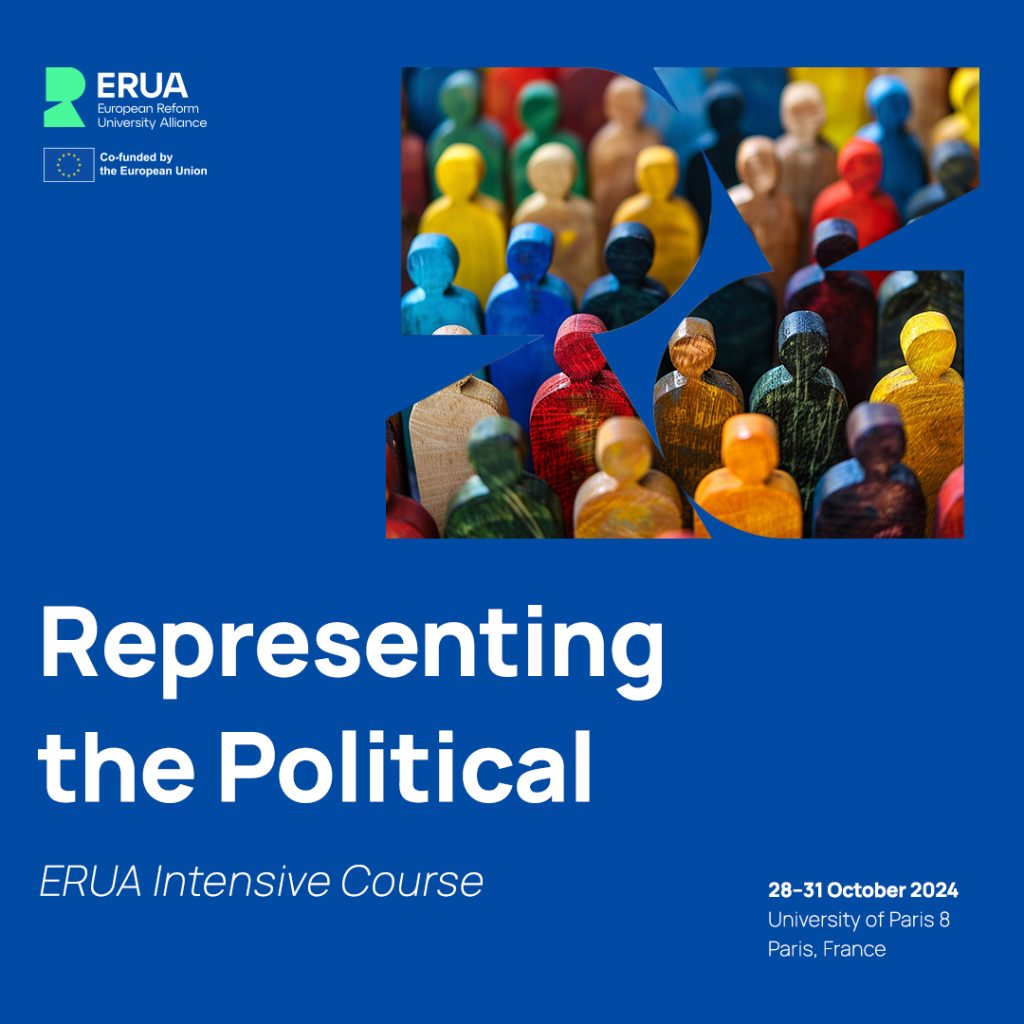
28 – 31 October 2024 Paris, France Between the 28th and 31st of October the Paris 8 University will conduct and intensive course “Representing the Political”, a deep dive into the intersection of politics, society, and the arts. The course is developed with the field of Political Science and will alternates from lecture format to […]
ERUA Intensive course: “Media in post-communist Europe”
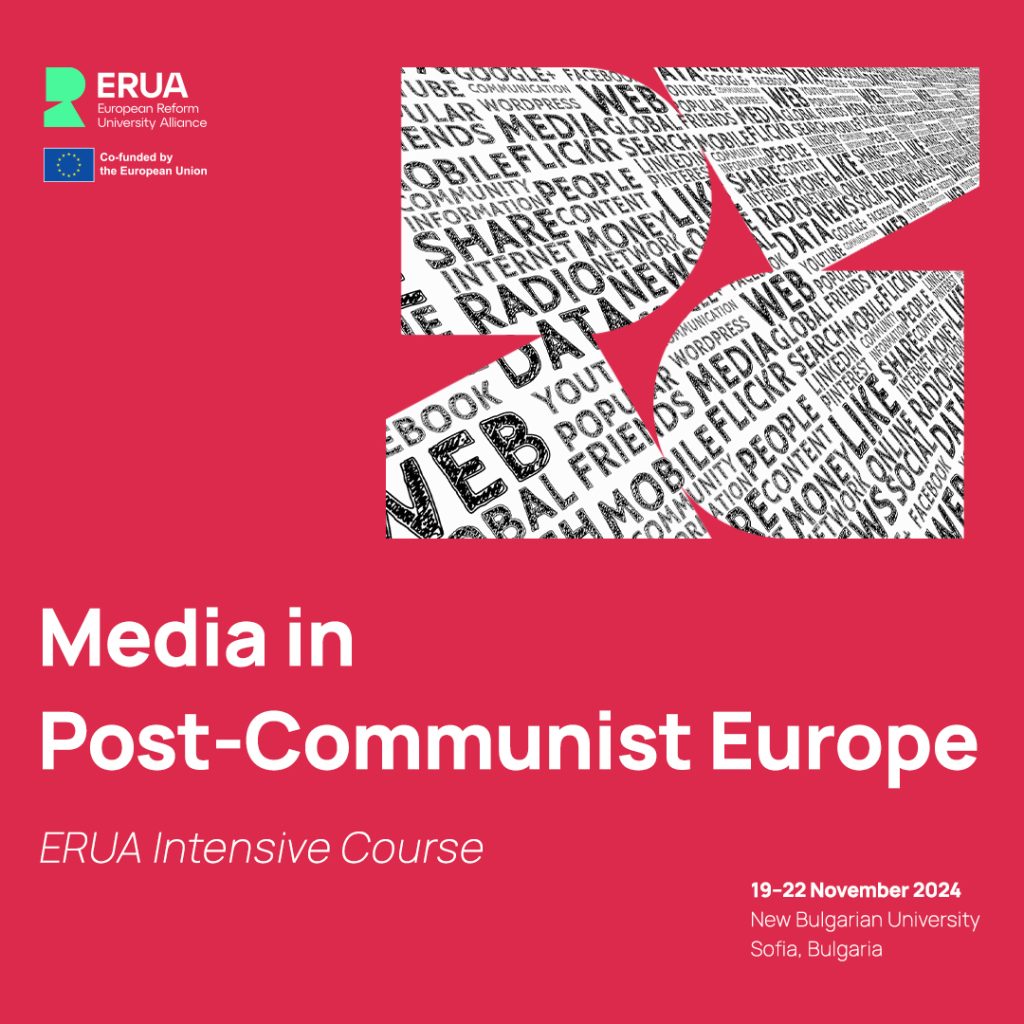
19 – 22 November 2024 Sofia, Bulgaria Between the 19th and 22nd of November New Bulgarian University will conduct and intensive course “Media in post-communist Europe”. The course is in the fields of Journalism and communication, will take place on site at NBU, Sofia, Bulgaria, and will be taught in English. The course outlines […]
ERUA Intensive course: “The Image and its manipulation”
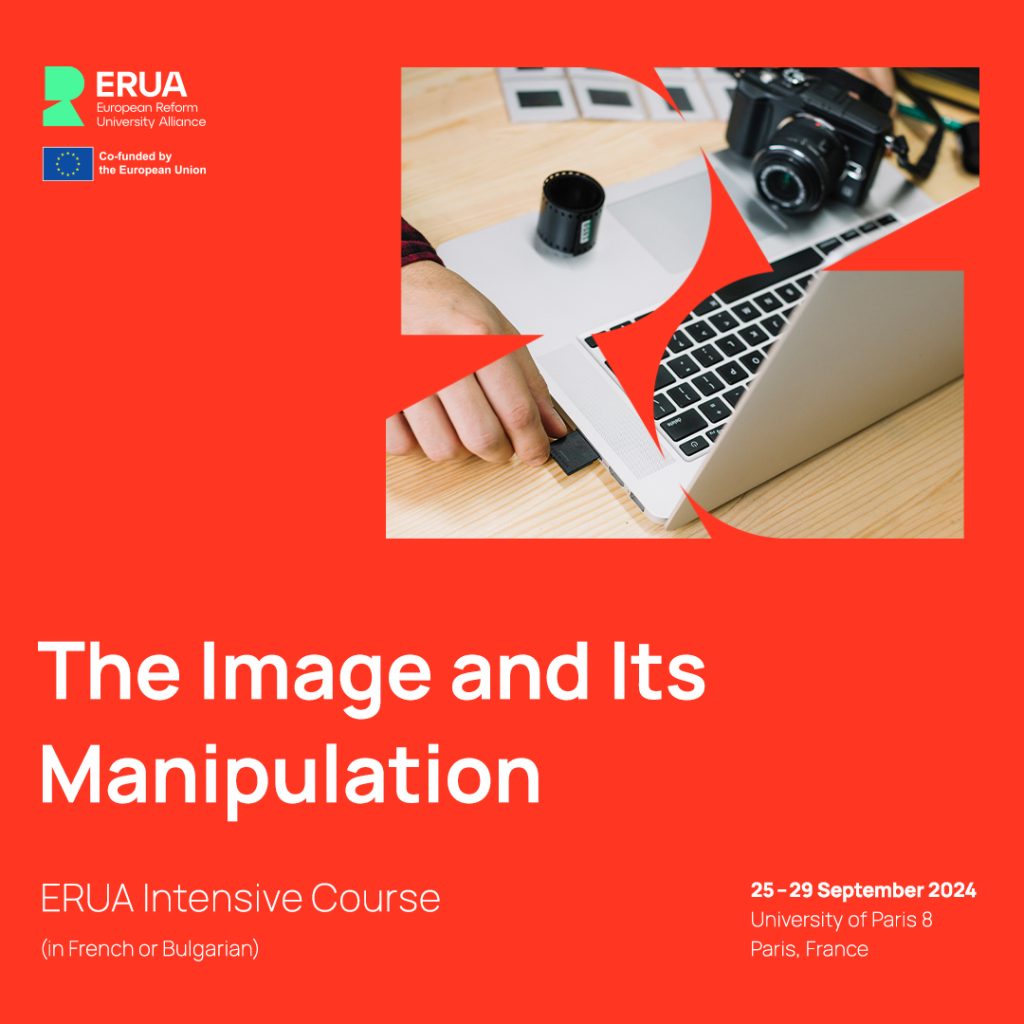
25 – 29 September 2024. Paris, France Between the 25th and 29th of September the Paris 8 University will conduct an intensive course on “The Image and its manipulation”. The course is in the fields of Photographic Theory and Photoshop, will take place at Paris 8 University, Paris, France, and will be taught in French […]
Extended Abstract Submission Deadline for the Gendered Innovation Conference

18-19 September 2024 Online Please note that the Abstract Submission Deadline for the Gendered Innovation conference has been extended. Now it is: 19th of June 2024, 23:59 (CET). The University of the Aegean, within the Re:ERUA initiative, cordially invites submissions for participation in the 2024 online Digital Conference on Gendered Innovation, scheduled 18-19 […]